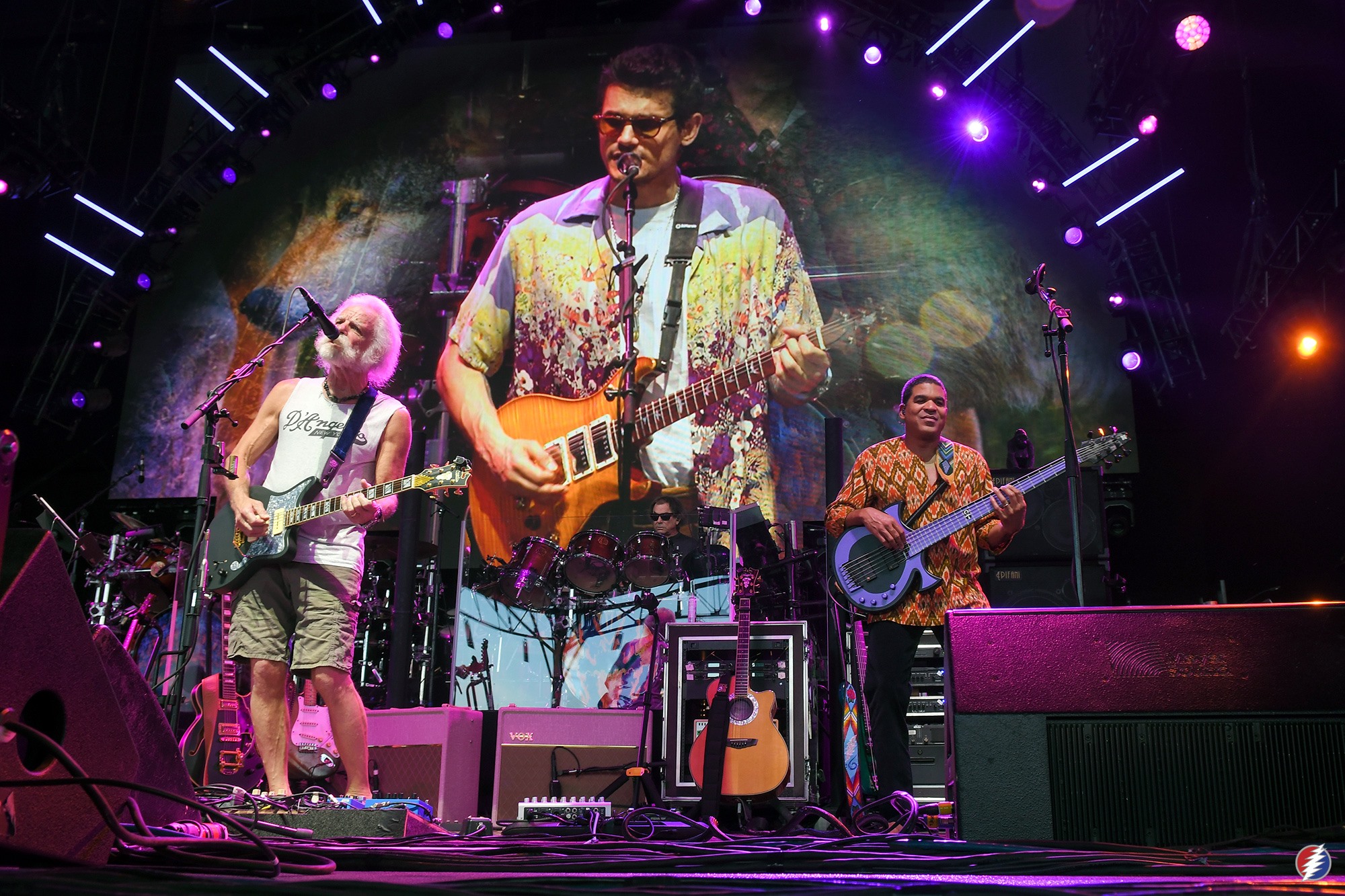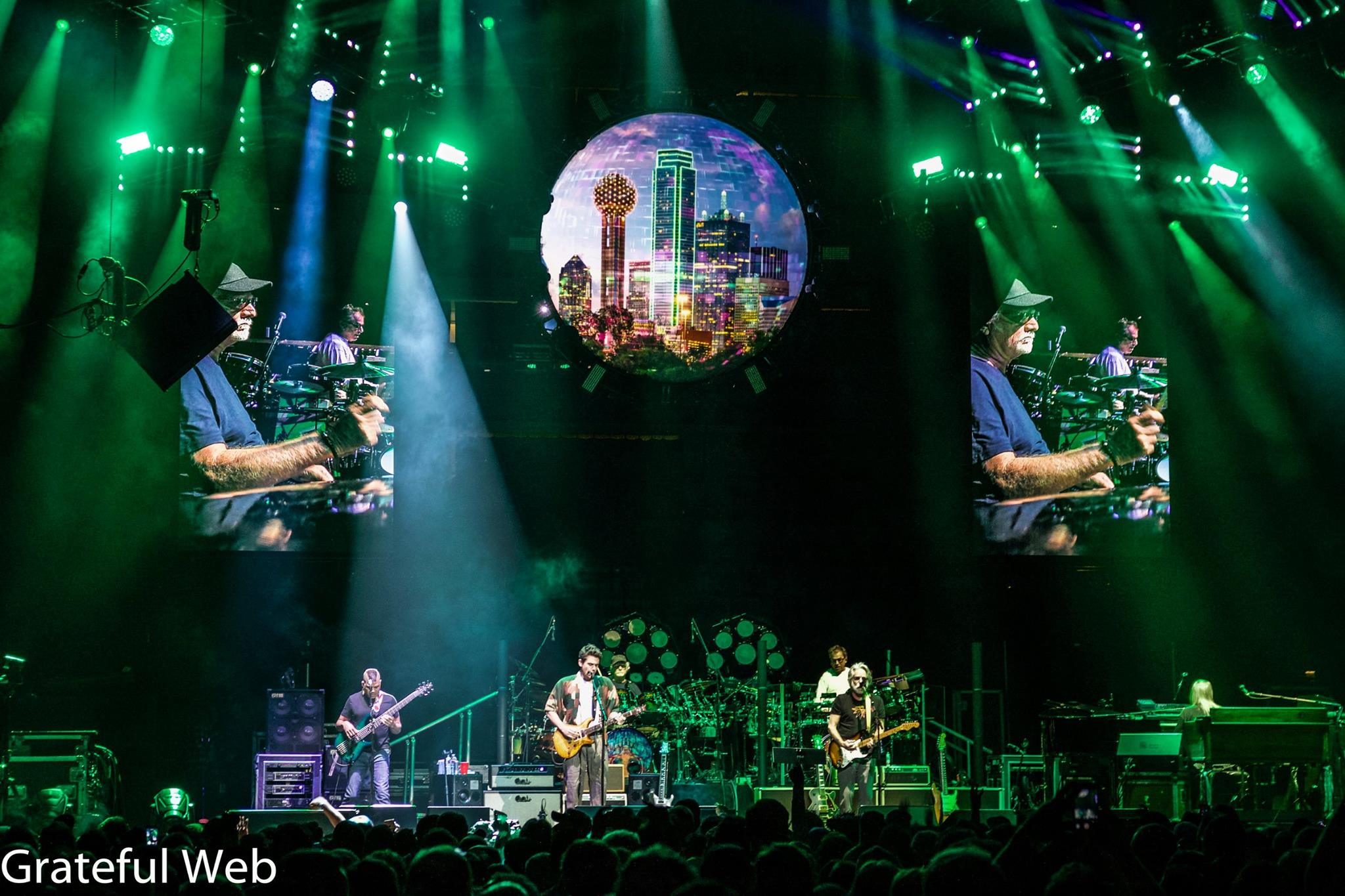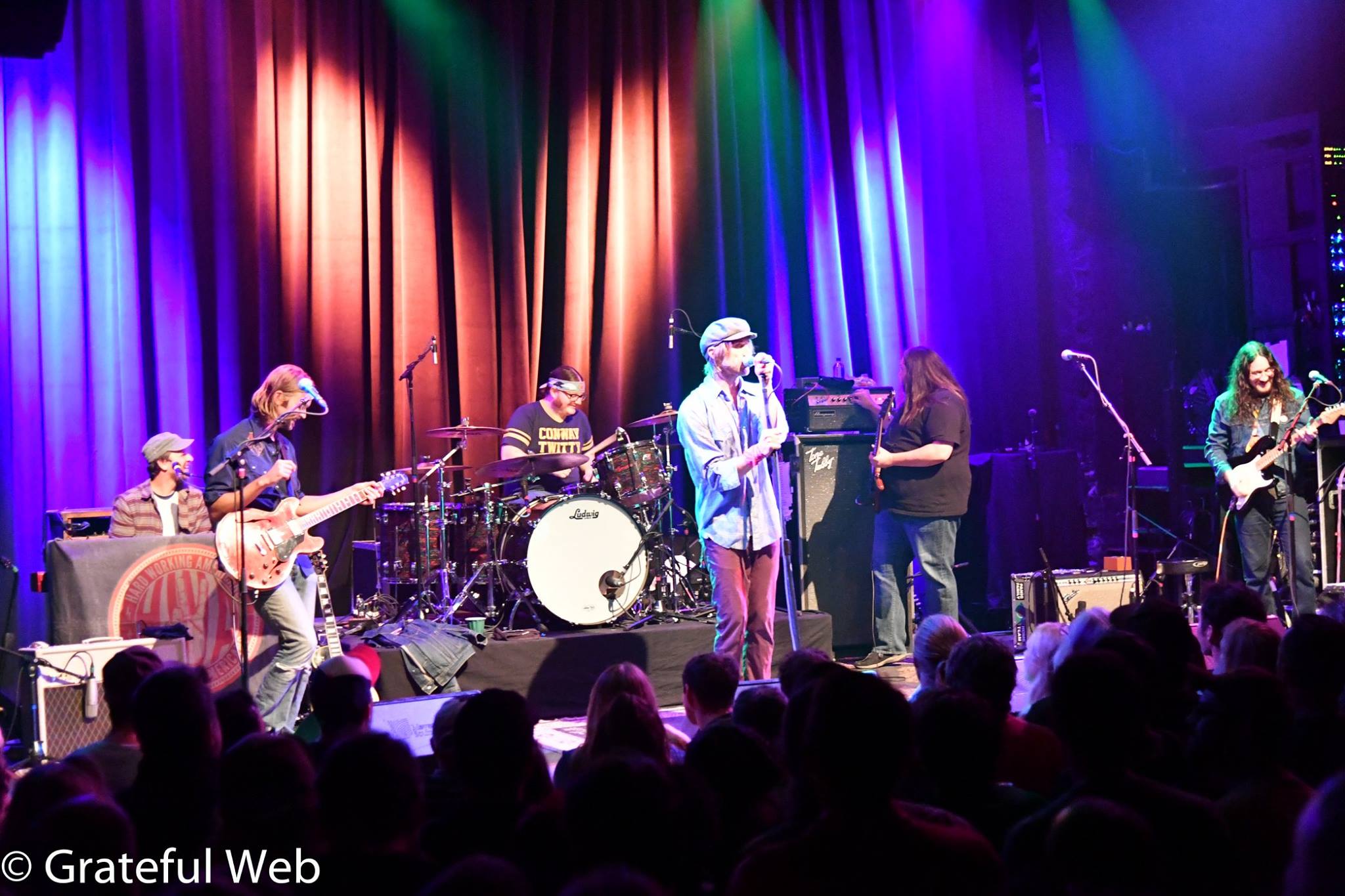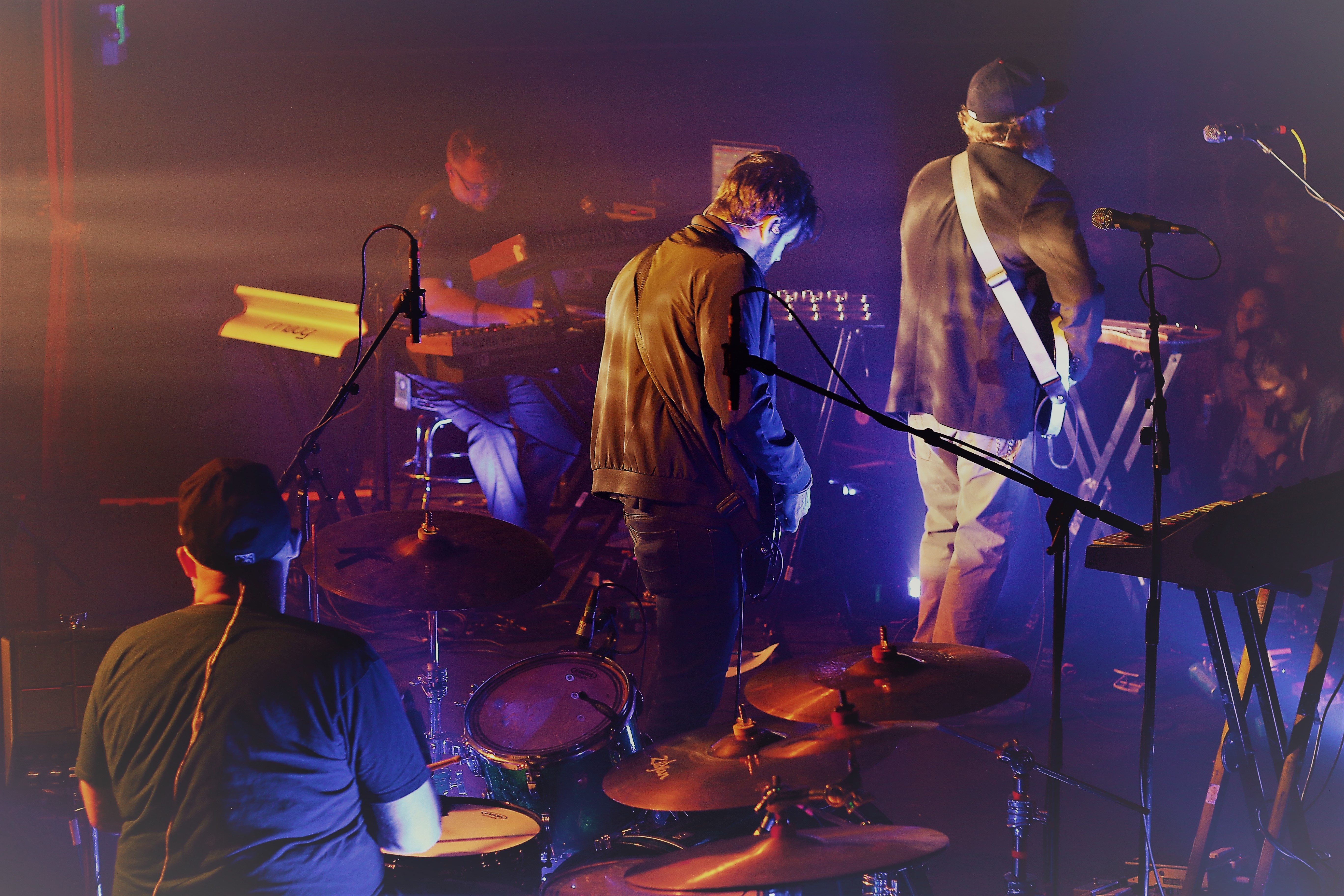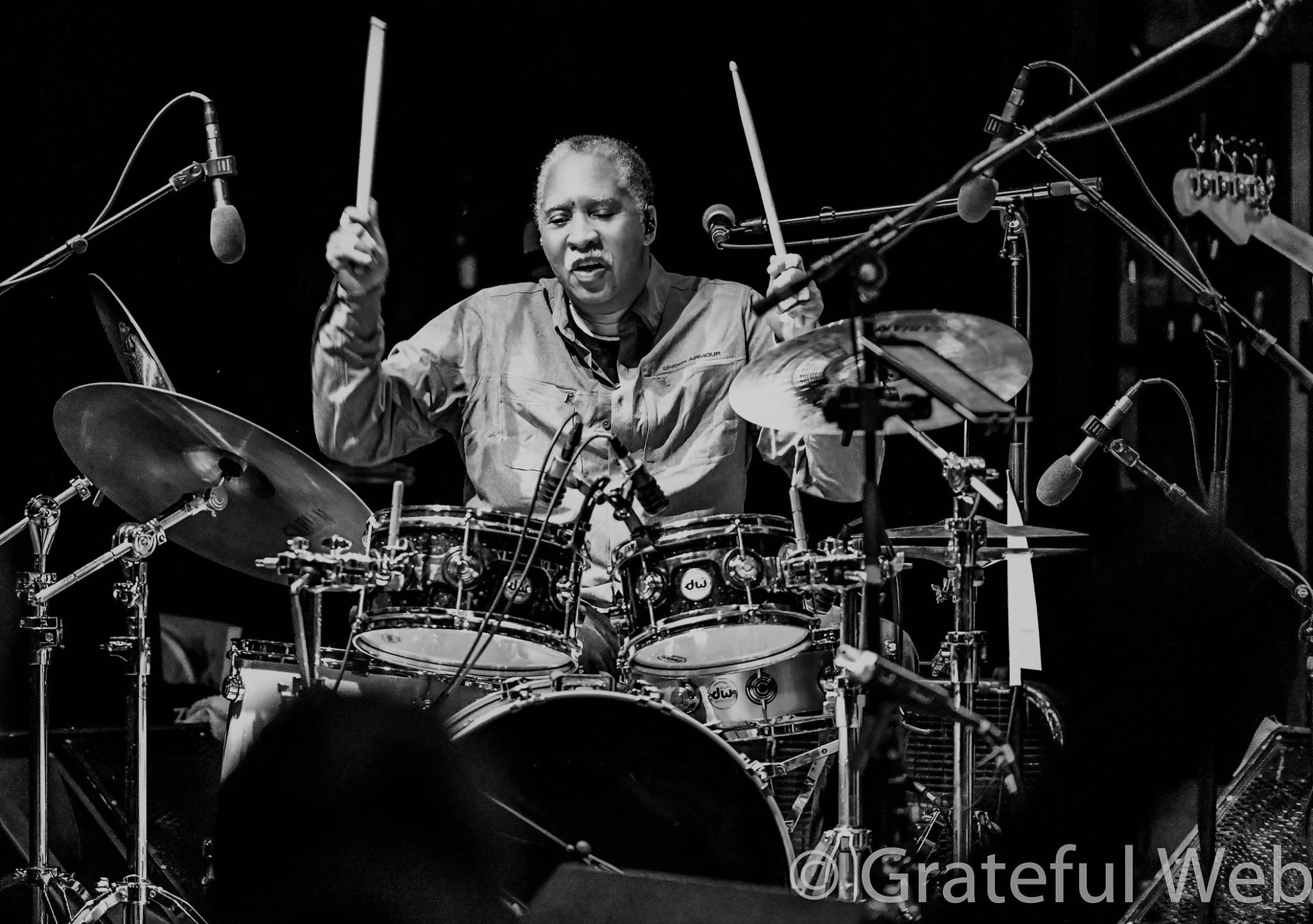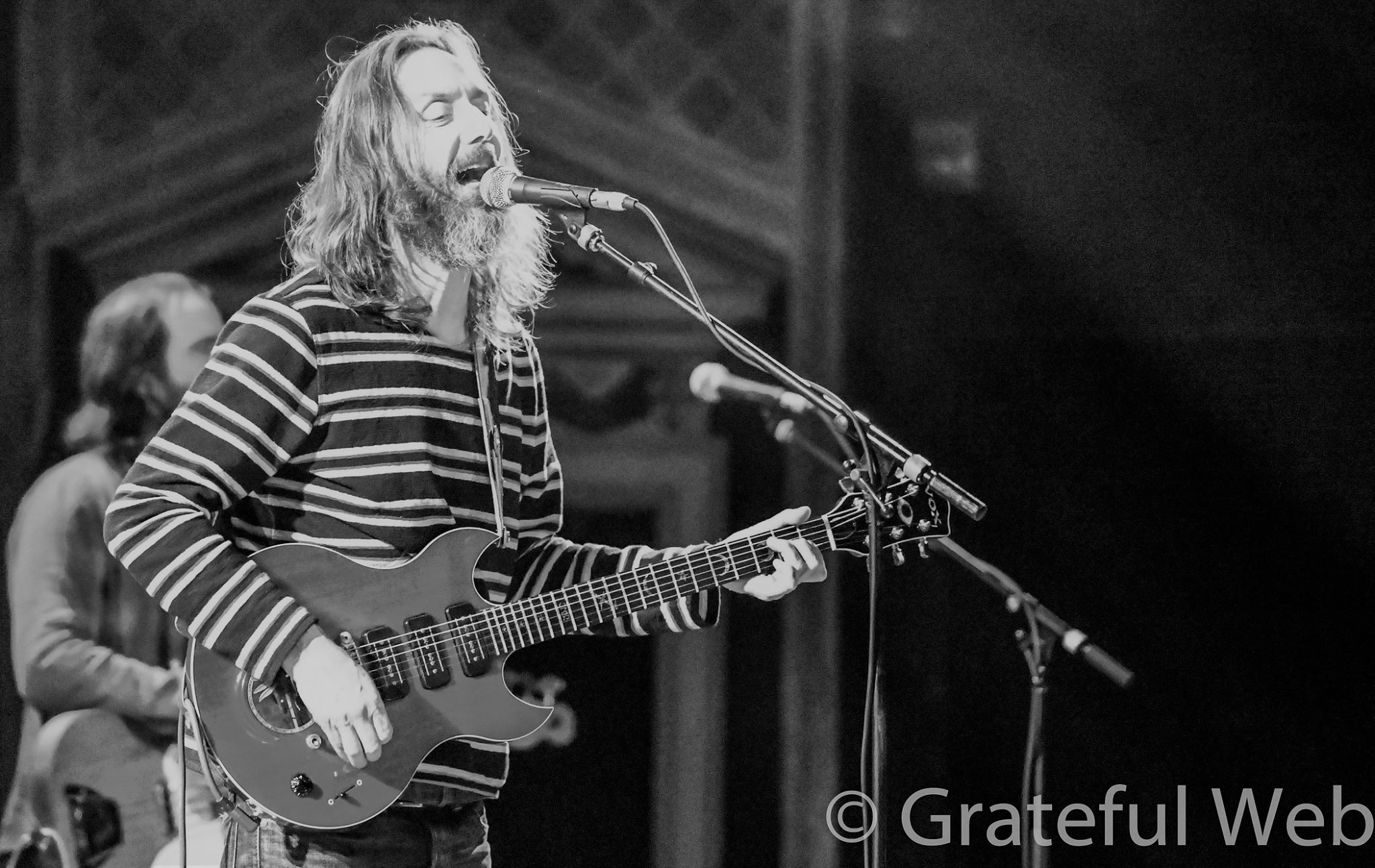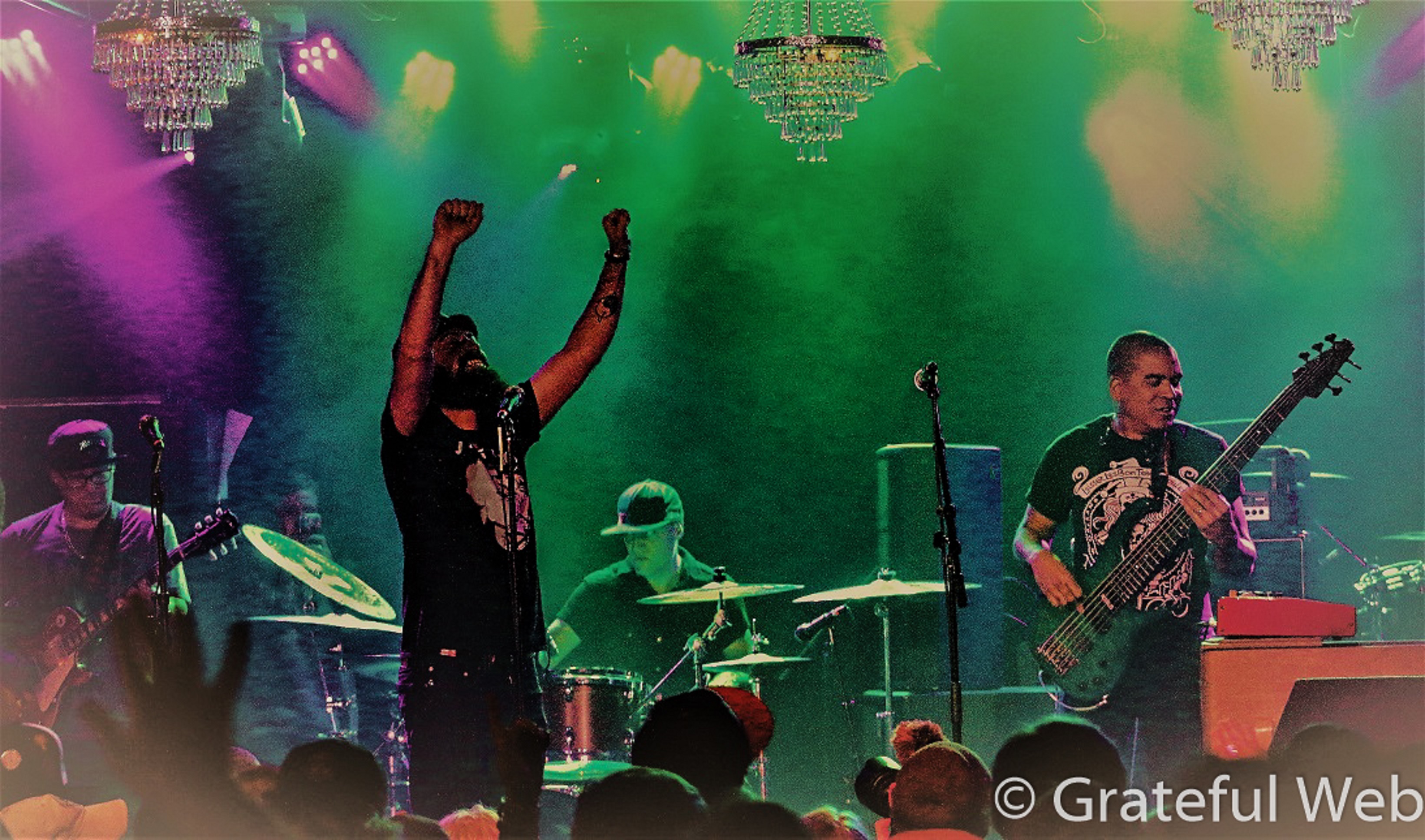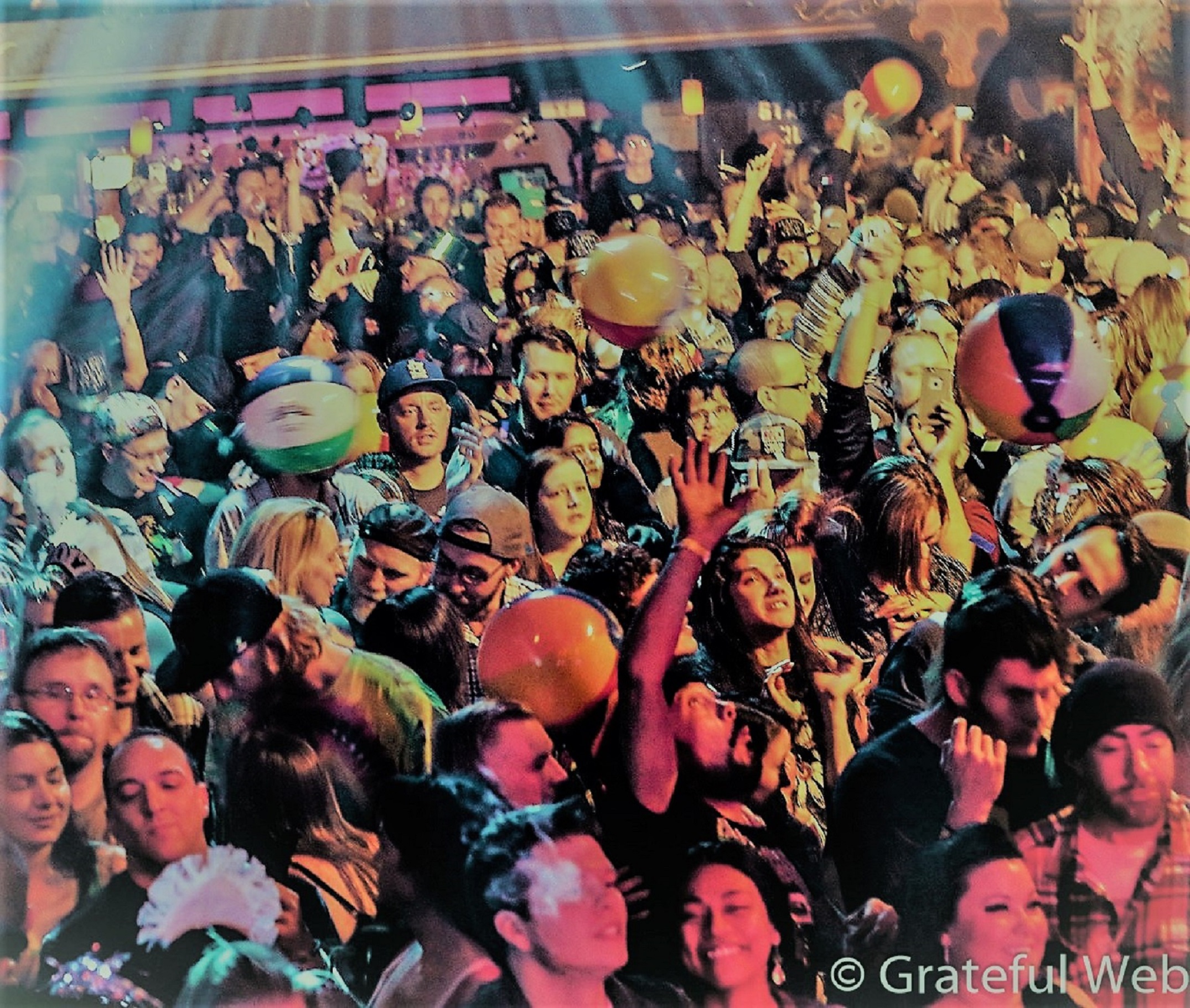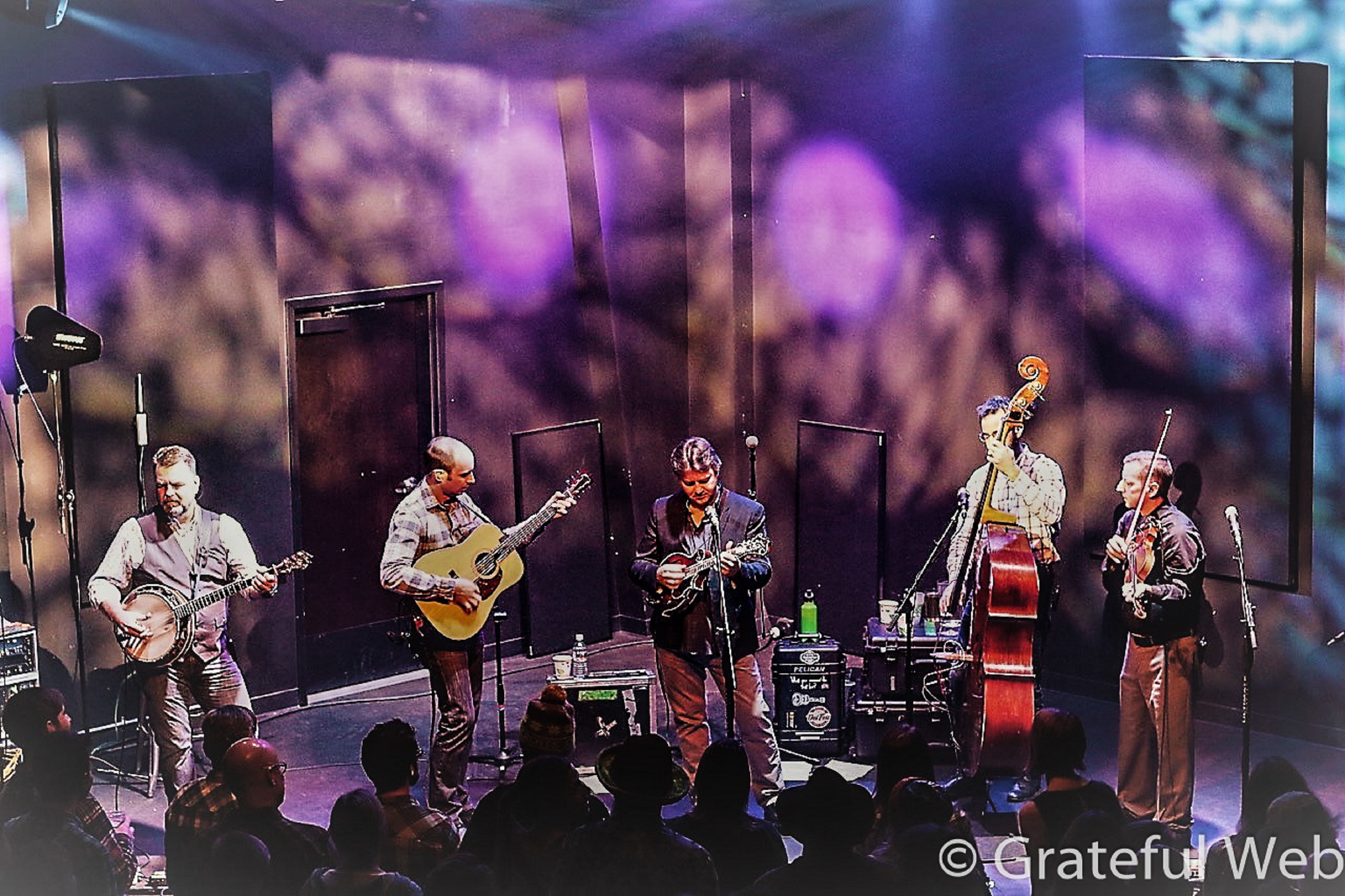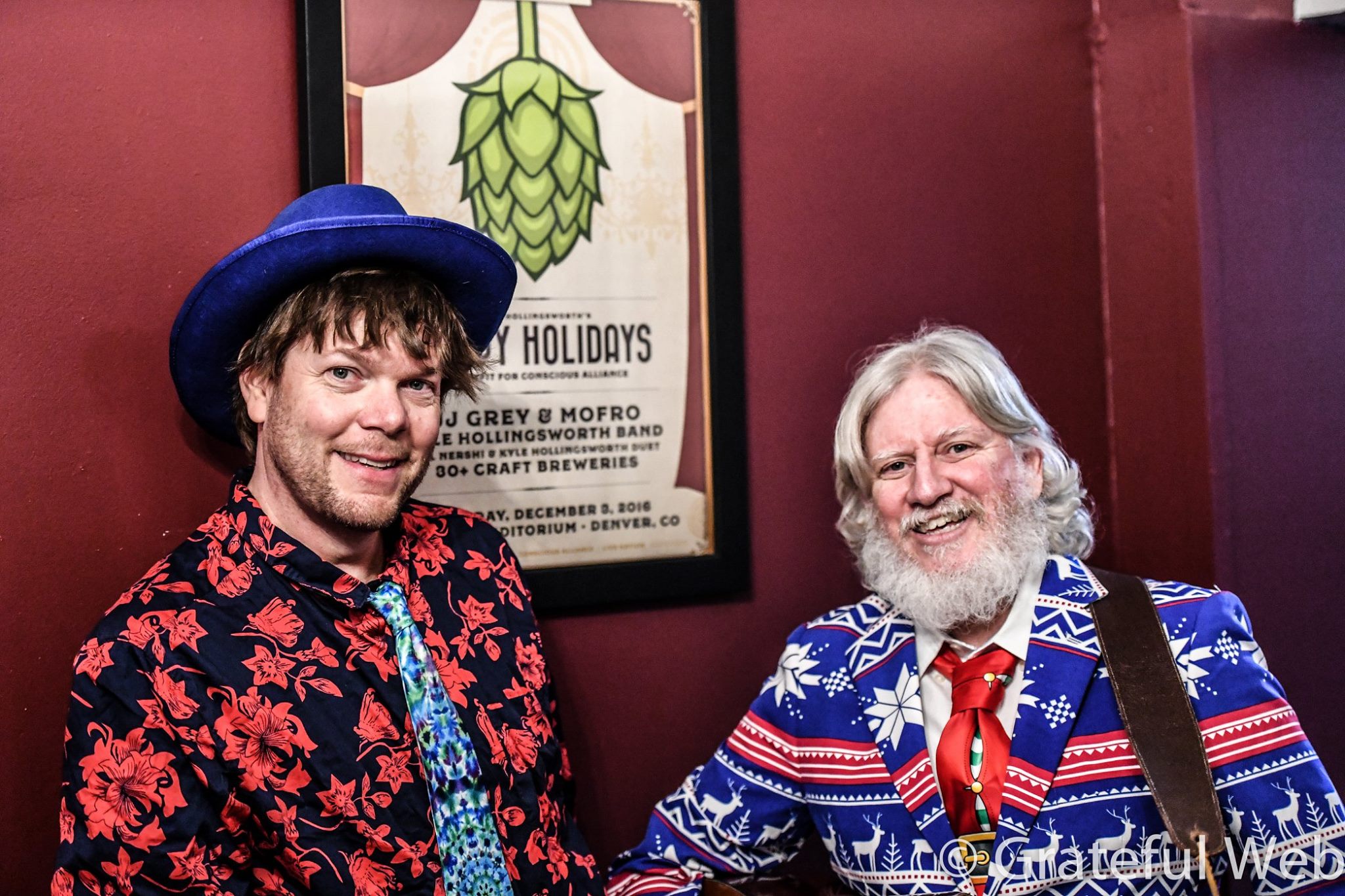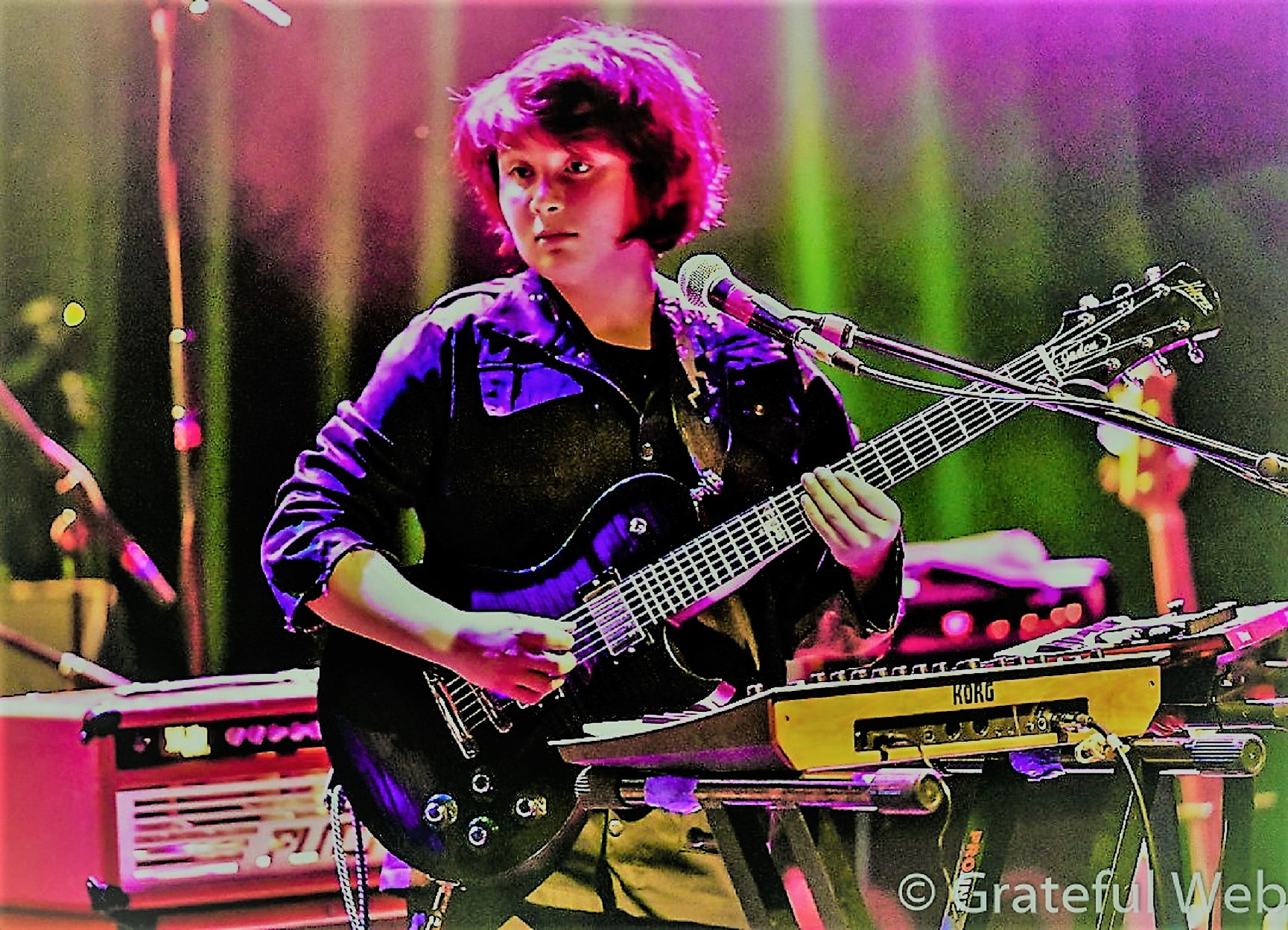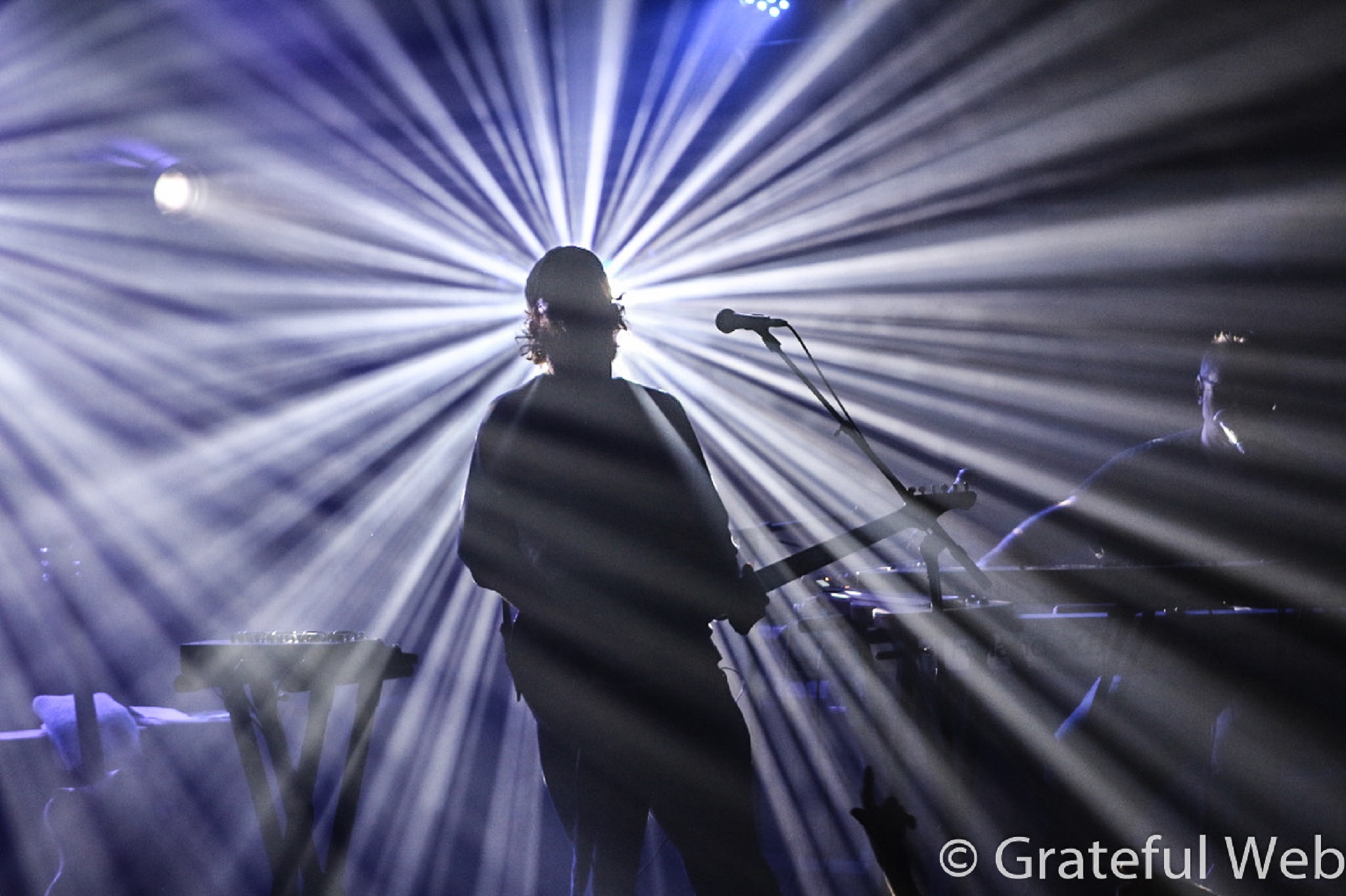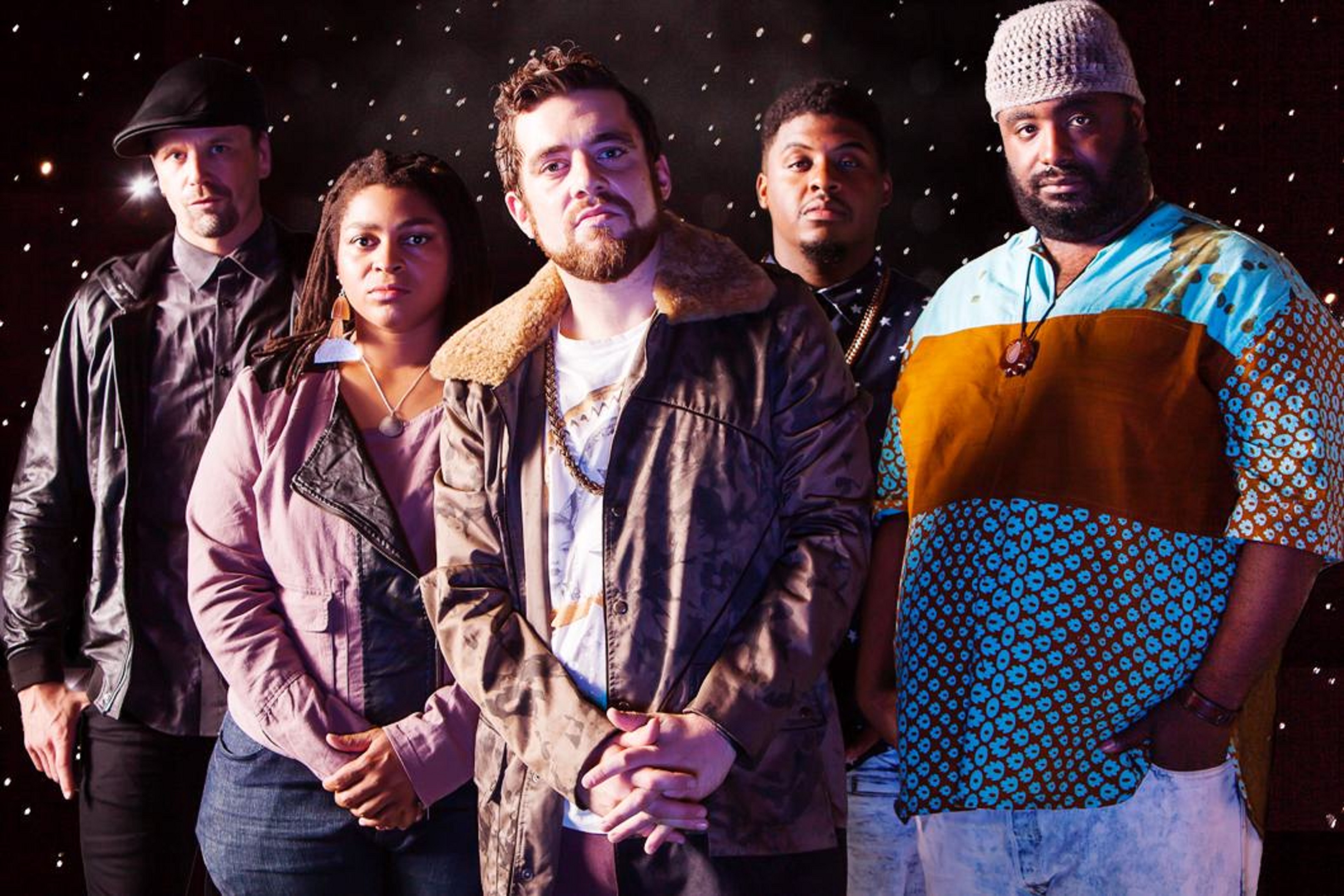The Grateful Web’s John Schumm recently sat down with RatDog guitarist Mark Karan, currently touring with Terrapin Flyer and Melvin Seals. Mark speaks about being embraced by the Grateful Dead community, touring with Terrapin Flyer, the upcoming RatDog tour, his battle with throat cancer, his solo career, and so much more.
Grateful Web: This is John Schumm with the Grateful Web here with Mark Karan of Mark Karan’s Buds, Bob Weir’s RatDog & The Other Ones, currently touring with Terrapin Flyer right now on their run in Colorado. And how’re you doing Mark?
Mark Karan: I’m good, how about yourself?
GW: Excellent. Welcome to Colorado. So, how are you?
MK: Good. It’s a lovely day. Considering some of the weather we just came through, it’s a nice change.
GW: Right, you were in Tulsa?
MK: Mhm, Tulsa, St. Louis and Chicago, so cold (burr).
GW: Far different than the high forties, mid fifties and sunny.
MK: Yes, and very different from the Bay area.
GW: So right now you’re on the road with Terrapin Flyer, along with Melvin Seals. How have the shows been so far and how’ve you guys gelled with the band?
MK: The shows have gone really well, which has been nice. You don’t really ever know. Terrapin Flyer is a band that works around Chicago and has a little bit of a fluctuating membership, but they’re used to playing together. Melvin and I get brought in as additions and it’s been really fun and it hasn’t taken a lot of effort. We’re finding our spaces and making some pretty great music.
GW: Like Dark Star Orchestra and other Grateful Dead cover bands, what’s their approach to a concert? Are they trying to choose a Dead show, or picking and choosing songs in their own way?
MK: Definitely not the former. We’re not trying to cop a show. I think Flyer in Chicago is normally more of a Grateful Dead cover band... but because of Melvin’s involvement-surprisingly Melvin doesn’t know a lot of Grateful Dead songs because his background was more JGB... we do some Dead, but more JGB oriented material. I think the only real criteria is that it be a song we all like doing and that we all know together.
GW: What would you say one of the more challenging songs that has presented itself or one of the songs that’s come about strong with the lineup on this run.
MK: Well there’ve been several songs that have been surprisingly strong, so I’d be hard-pressed to pull out one or two specifically on the strong end, but I can definitely giggle and say Doug pulled out Cumberland (Blues) the other night, coming out of something else we were already playing, and I had to go over to him and say, ‘Doug, Ratdog didn’t really do Cumberland and there are a lot of chords. (Laughs).’ I kind of fumbled my way through. We got through it, but that was probably one of the weaker tunes we did.
We seem to have a good time with China>Rider... and I’m one of those people that seem to think all roads lead to The Other One, so every so often we find ourselves stepping into that trough and that always gets fun.
GW: Do you see your participation, you and Melvin, going past this tour?
MK: Well, this isn’t the first time we’ve done this with Terrapin. Doug (Hagman) contacted me in 2011 or 2012, and I think this is the fourth or fifth run that Melvin and I have done with him. A couple of them have also included Tom Constanten. I have a feeling we’ll do it more, yeah.
I also have a fair amount of interest in doing some more stuff with Melvin just because I like where he comes from musically. It’s a nice cross between the Garcia/Dead oriented thing and his background in R&B and gospel, which is a lot of where my musical love lies also.
GW: I can see that being interesting the way he worked with Jerry over the years, you worked with Bobby over the years. There’s kind of a cross connection, but at the same time very different. Both sides of the spectrum as far as what the Dead were doing and what Jerry was doing outside of that.
MK: It’s funny. Needless to say I love Grateful Dead, and that was a very unique experience, but I really appreciated the Garcia band on another level, because what Jerry was doing with that band spoke to music sort of above and beyond Grateful Dead land that I’ve got really deep love for. Jerry seemed to mine a lot of the old Motown and Stax and early country and Bakersfield music, and stuff that I have a really passionate connection to.
GW: So growing up in San Francisco, you were exposed to the Grateful Dead, but going into the other music genres you just mentioned, what had the highest effect on your style of playing as you were growing up?
MK: I’m all over the map. One thing that I take pride in that probably shoots me in the foot as far as accessibility and marketing, is I love being eclectic. My tastes and what I love to do are all over the map. I love indie rock; I love straight up blues and old soul music. I love funk. I love reggae. I love psychedelic music.
At various times in my life, from two to five years, I’d find myself thoroughly immersing myself in one kind of music, and then all of the sudden, it was like some little switch being turned off, and I was like, oh, I’m done with this chapter, what’s going on over here.
Nowadays I, like I say it’s probably not the best thing for marketing, but if I love the song, and I love the groove, and everyone I’m playing with feels good on this song, then we’re doing it and I don’t really care what style it is.
GW: On your solo album you released in 2009, Walk Through the Fire, would you say that applies to most of the songs on there?
MK: Yeah, I think the thread of continuity that I would apply may be an overused term these days. So many people use the term Americana now I don’t know what it even means anymore. That said, as an umbrella that sort of encompasses all inherently American forms of music, whether blues or R&B or folk music or Appalachian or bluegrass music... or whatever, that’s what I really get off on. My record, and the current version of my original band, I feel are under that umbrella, and then I more or less apply the Grateful Dead ethic when it comes time to solo or have instrumental sections. We’ll offer a pretty focused presentation of the song and then we’ll see if we can go to Mars for a little while instrumentally, and then come back to Earth.
GW: Come back to the actual song.
MK: Exactly.
GW: That was your first solo album. What led to some of the material and the writing process? You said you self produced the album as well?
MK: I did. I did that record when I had just come through my cancer thing. Needless to say I was really thankful to still be up and walking around. I’d always threatened to make a record and had just never gotten around to it. I realized I had probably been on hundreds of other people’s records and had never made my own. Coming that close to not being on the planet anymore, I thought it was time.
I also made a very conscious decision to be pretty self-indulgent (laughter). You know, the songs are all too long for radio and I didn’t really care about continuity. I figured the continuity would be everything being filtered through my sensibilities and my tastes.
As to the songs, there are twelve songs on the record and half of them are songs I wrote. There’s a song called Bait and Hook that I wrote all the way back when I was nineteen years old. I’d never recorded it, so I pulled it out.
I’m not a very prolific writer, you know. I write when inspiration hits, and sometimes it can be years between, so basically I just gathered up my favorite songs that I’d written, and a couple favorite songs by friends of mine and picked three or four cover tunes that I loved, but wanted to treat differently than their original versions. Like, there’s a Joe Jackson song on there but I did very differently from Joe’s approach. I did an sort of cinematic take on the old Robert Johnson staple Love in Vain. Similarly I wrestled the Randy Newman song, Think it’s Going to Rain Today around a bit. It goes off into an almost fusion thing. I just kind of had fun. It was a really fulfilling creative experience.
GW: You said how inspiration can take years to hit. What do you think of another album down the line? Has that crossed your mind yet?
MK: Very much so. I’m in the process of pulling that all together. I’ve written much more in the last couple of years since Ratdog went on hiatus than I had in many years, so I’ve got about half a dozen songs ready to go, maybe even seven or eight. Like I was saying, some of the songs from my previous record were from an earlier era that had just never been recorded. Similarly, a couple of the songs for the next record are older and then I’ve got four or five I’ve written in the last two years.
I’m not sure I’m going to release an actual album because of the state of the music industry these days. I don’t think a lot of people buy albums anymore. They often buy one song at a time. I do want to have it all collected and do a vinyl release but I’m trying to stay aware of all of the changes that have occurred in the music business. So regarding a full album, we’ll have to see. I grew up in the era of the album, so I’m very tempted to go ahead and do it.
GW: Of course, at least some sort of limited release like vinyl that looks great in a record frame on a wall.
MK: And I want people to be able to read liner notes and stuff. I mean, I came up learning about a lot more than just the names of the people that were on the radio or just the star that was on the record, because I’d read the back of the records. I’d put one on, twist one up, listen to the whole album front to back and read all the liner notes while it was playing. I miss that ethic and like to do everything I can to encourage people to “go deeper”.
GW: I grew up and I guess was a part of the CD generation before hitting the MP3 generation, and I still collect vinyl and go out and buy them, and you really do recognize the studio session musicians on there. Something I notice a lot is the pedal steel player, Sneaky Pete.
MK: Sure.
GW: He’s on all sorts of albums.
MK: Yet most people have no idea who he is.
GW: No idea, but that’s one of the beautiful things about having those, seeing those different players. And it becomes a whole experience in how you can appreciate what they’ve done for the album in each different way.
MK: You and I were just talking about this earlier today. My ex-wife used to tease me because I have relationships with (Bruce) Hornsby and Bob (Weir) and Phil (Lesh) and some pretty notable rock stars, yet I didn’t invite any of them to be on the record because it just didn’t fit the direction I wanted to take with the record. But there’s a bunch of people on there that I knew about from listening and reading liner notes over the years. For example, Mike Finnigan, he played with Hendrix and Crosby, Stills and Nash and all of these wonderful bands, but most people have no idea who Mike is. I didn’t know him at all. I got his phone number from someone who knew him in LA and just cold-called him and said ‘will you play on my record?’ And he said “sure”... so I ended up with a lot of these semi-unknown sidemen types that had been my heroes for decades.
I think even Delaney Bramlett, who was not a sideman and was his own entity very much so... who gets credited for teaching Clapton how to sing, had the band that Clapton kind of raided to form the Dominos and who had untold influence on ‘70’s rock’n’roll, isn’t known to most of the people that are my fans... and he’s one of my all-time heroes!
GW: Whom else have you been playing with outside of Terrapin Flyer? Some of the local San Francisco gigs, I know you mentioned the Terrapin Crossroads Grate Room and the bar and restaurant, and The Sweetwater.
MK: I did a bi-weekly residency at the new Sweetwater the first year they were open, every other Wednesday. Until recently I’d been playing with a band called Rock Collection, which was Lebo from ALO on guitars, Robin Sylvester from Ratdog on bass, Greg Anton from Zero on drums and myself. That was a great little four piece, but that’s going through some changes and I’m going to take a hiatus. They’re going to do some work with Melvin Seals and Stu Allen, but I imagine I’ll do more with them in the future.
I’m also doing a band called the Ghosts of Electricity, which has Stu Allen and Greg Anton in it also, along with Mookie Siegal from the David Nelson Band and the New Riders of the Purple Sage playing keyboards. Robin Sylvester is on bass there too. A guy named Pat Nevins plays additional guitar and sings too. That band is all Bob Dylan material being sort of put through the Grateful Dead grinder. We do all Dylan songs while incorporating the jamming ethic of the Dead.
GW: Kind of like the Dylan and the Dead stuff.
MK: Kind of, yeah.
GW: The name is from Visions of Johanna?
MK: That’s where the line is from, yeah. I love the name of the band. It’s really one of the hooks for me. We’ve been playing a fair bit.
I’ve been doing a lot of stuff at Phil Lesh’s Terrapin Crossroads with a variety of people. I was invited to play a bunch of the rambles with Phil there... a run of shows with Tim and Nikki Bluhm, a couple runs with Chris Robinson and Jackie Greene, a couple shows with JK and Jeff Chimenti from Furthur. It’s been nice to connect with Phil and I’ve also done a bunch of shows there with his sons Brian and Graham Lesh and their bands American Jubilee and Midnight North, as well as some interesting “one off” combos.
Then of course I’ve got my own band, Mark Karan’s Buds which is conceptually very similar to my old band, Jemimah Puddleduck. I finally paid attention to all the critiques I’d received from the fans. ‘Hey I can’t spell it, I don’t know how to say it, I can’t remember it and it’s a silly name so I’m not inclined to go see it.’ I finally went, alight, fine, I’ll make it Mark Karan’s buds, does that make it a little easier? (laughter).
It’s essentially my opportunity to get out there with my original music and my personal favorite covers. The ethic is essentially Grateful Dead-like without being a Dead cover band. It’s more about the concept than the material. Of course I do Grateful Dead songs too to show appreciation to the fellers and the fans that have supported me for the last fourteen or fifteen years or whatever its been, and because they’re among my favorite songs. But I’m also pretty vested in trying to get some stuff in front of the kids they might not hear another way.
GW: You mentioned something earlier about having regional versions of the band outside of the Bay Area. Doing different lineups if you’re on the east coast or in the southwest.
MK: I’ve done it on the east coast a couple of times now. I’ve had Mookie, who lives in Baltimore and I’ve been using Joe Chirco & Klyph Black from the Zen tricksters on drums and bass. We do it as a four piece. I think I’ve done three east coast runs like that, with some more coming up I think in the next few months.
That’s all I’ve done so far along those lines, but I’m looking at doing something similar in the Colorado area and possibly the northern Midwest around Chicago and outlying areas. It really comes down to a matter of practicality. I love the guys I play with in the Bay Area, but the nuts and bolts of carrying a whole band and gear and everything else is just too damn expensive. I’ve had to say, well, there are a lot of good musicians in the world, so why not make use of them.
GW: You played with the Other Ones starting in 1998, and moved on from there to Ratdog, which was Bobby’s full time touring project up until a few years ago. Minus I think two tours when you were sick…
MK: One for sure.
GW: Summer 2007?
MK: Late summer into fall.
GW: After Bonnaroo I think.
MK: Yes, Bonnaroo was the last date before I had my biopsy surgery. Once I got biopsied and they said, ‘hate to tell you, but it’s real, you do have this,’ and I needed to go through my treatment i had to bail on touring. As much as I wasn’t thrilled with the prospect of missing time with my boys, Steve (Kimock) was kind enough to step in and cover the chair.
I have to say feel pretty damn lucky. As serious as that bout with cancer was... I mean, the doctors originally gave me ten percent chance of survival and I came through it really, really well... I’m pleased it was able to be covered and I’m incredibly pleased with how fast I was able to come back to my chair.
GW: I saw you guys, RatDog, in 2008, I want to say Spring 2008.
MK: Yep, that’s when I came back.
GW: On your rig, you had what looked like C-3PO.
MK: A lot of people thought it was some kind of Star Wars tribute. What that was actually, the type of cancer that I had was a throat cancer, and one of the recent treatment techniques that they came up with is called IMRT, which was invented by the doctor that did my radiation treatment at UCSF. It’s a method which stabilizes the patients head so they’re able to get much more specific on where the radiation is going to hit. The way they went about stabilizing my head was using this plastic mesh that was gooey when they first laid it over my head and then kind of formed to my face. They spread it out on the table below me and it kind of hardened into a mask. That mask has little places that allowed it to be cinched down to the table and would keep my head completely stable while the radiation machine was making its rounds.
So, that thing that was on my rig... they gave me my radiation mask and the crew guys in Ratdog and myself spray painted it purple, put gold glitter on it, put a couple of car headlights into the eyeholes with a battery on them so they would light up. Our recording (engineer) Peter Amerall had a little wooden cutout that said, ‘live’, to talk about “Ratdog Live”, the live CD service. Live and live are the same, so I co-opted it and put the whole thing up on top of my rack as a shrine to survival and a way of saying thank you. I made something artful and joyful out of something scary and medical, and then said, ‘live.’
GW: I remember when you guys were in Kentucky, just across from Cincinnati, and you guys came out and it seemed there was so much more cheering and love than the year before with Steve filling in. It just seemed like people were so happy to have you back. Like I said, you were in Ratdog from 1998 until Bobby hung it up in 2009.
MK: Yeah, i was really blown away by all the love and support the entire Ratdog family showed me during that whole time.
GW: So what was it like, how would you define your time as the lead guitarist of Ratdog, looking back? I know that’s kind of an open-ended question.
MK: You know, I tend to shy away from open ended questions, but that’s one I can answer. Needless to say, being involved with Ratdog and The Other Ones was a huge, life changing thing for me. I’d always been playing music and was burbling around under the surface. I’d had a few brushes with notoriety, but all were relatively brief. Being brought into the Grateful Dead world and being embraced by the musicians and fans and everything and having it last for more than twelve years was phenomenal.
The amount of acceptance I experienced and the amount of new musical approaches I was able to throw myself into fully without having to worry if it was commercial or anything like that was a real gift. I was truly blessed by the fan base and popularity I stepped into, because I had permission in that world to do whatever felt right. It’s not so much a “what’s going to sell” kind of orientation and that gave me an enormous amount of freedom.
Of course I also made better money than I ever had before, traveled more and enjoyed visibility in parts of the world and country I don’t think I would have achieved any other way. It was an amazing experience that I feel incredibly lucky to have had.
GW: RatDog is touring this February through March, and it’s missing two key pieces of what had been the lineup since you started in 1998 and Kenny came in around 2000-2001?
MK: I think 2001 or 2002. I don’t remember exactly. That probably sounds awful.
GW: Not really. It’s a long time to be in a band together.
MK: Yeah and you know I’ve never been one for keeping track of dates.
GW: Anyway, the lineup is missing both you and Kenny this time around, and they have Steve Kimock on guitar, and no saxophone. And have added Rob Wasserman, who was the original bass player with Bobby in Ratdog, along with Robin Sylvester. I know a lot of people have been wondering why that is, and why you aren’t there, and Steve is, and I was wondering if you could provide any insight into that.
MK: You know, I’d love to but I don’t have a clue. We all parted company, as far as I know, extremely amicably after twelve plus years of playing together and Bob went on to do Furthur. I always had in the back of my mind the hope that Ratdog would be the proverbial phoenix and rise from the ashes and had always assumed that when or if that happened, I’d be involved. When the announcement came out it caught me by surprise as much as anybody else. I don’t really have any idea as to why. I guess Bob wanted to try something different.
GW: I guess it’s his band, right?
MK: It’s his box of toys; he can play with whatever he wants.
GW: Shifting gears a little bit here, last night your hometown San Francisco 49ers lost to Seattle in the big football game, so now we have a Seattle vs. Denver match-up, and I know people have been laughing and saying how they’re the only two states that now have legal and recreational marijuana.
MK: The 420 bowl (laughter).
GW: I don’t know if you watch football, but do you have any predictions?
MK: No, in fact that’s one area that, while I can’t speak for him, Weir might have been mildly disappointed. He’s such a fanatic, especially about his 49ers and I hate to say it but I could care less about sports. I was always the weirdo, misfit musician that the jocks beat up on, so I never really made friends with sports.
GW: What do you feel about the whole legalization thing here in Colorado and Washington state?
MK: It’s about freaking time and it’s time for the rest of the country to line up too. I mean, it’s pretty clear this stuff does far less damage than alcohol, which has been perfectly acceptable, minus that one foray into prohibition, forever. There are lots of people in jail for violent crimes committed under the influence of alcohol and lots of divorce and wrecked cars can be directly linked to alcohol, and that’s perfectly fine. Meanwhile marijuana has been proven to have serious medical benefits, mental benefit, relaxation benefits, and seems to be pretty benign, but is still illegal in most places. I don’t know of many people in jail for violent crimes committed while smoking pot, not to mention the fact we’ve been wrestling with an economy that’s struggling and here’s an instant income resource. I’m hoping the other forty-eight states figure it out pretty quick.
GW: One would hope. So when you had cancer, to stop back into that, did you use marijuana as medicine?
MK: Absolutely.
GW: Did the doctors suggest it?
MK: It wasn’t ever suggested, but it was also never rejected when I brought it up. Both of my oncologists, I had one at UCSF and one at California Pacific Medial Center, were fine with the idea. In fact, one sent me an abstract done by UCSF talking directly about the positive effects of marijuana on cancer tumors, pain management and appetite increase. I found that, for me, I mostly used it for appetite enhancement. I was having a real hard time eating when I went through the chemo and lost all sense of taste. Eating was like stuffing a piece of cardboard in your mouth and trying to convince yourself to eat it. So, I’d get high, get the munchies and, even though it didn’t taste like anything, I’d eat. The other thing was that, while I wasn’t in a lot of pain, there was the potential to get kind of hung up and go into a mental or emotional hell behind the fear and all of that and pot was useful in terms of refocusing where my head would go. I could get stoned and turn on a movie, cuddle with my dogs and just lose myself in it and not be thinking about that stuff.
GW: That’s good. Lots of good qualities about it and it’s nice to see at least two parts of the country recognize that. And hopefully California is up next.
MK: And a few others that are close but no cigar.
GW: Well, that is really about what I have for you right now. Like I said, Mark is in the middle of a run with Terrapin Flyer throughout this week, including Denver on the 24th and 25th. And heading to Breckenridge the 26th. And where do you head after that?
MK: Home. It’s kind of a short run, nine dates total.
GW: Short but sweet.
MK: Exactly. You know, I like it that way. I like being able to hit it and quit it (laughter).
GW: There’s no better phrase. Well thank you so much Mark, and I appreciate you taking the time. See you at the shows.
MK: It has been a pleasure hanging with you and thanks for facilitating my introduction to the newly minted stores in Colorado.
GW: You’re very welcome, I hope you enjoy it.
MK: I think I will.








